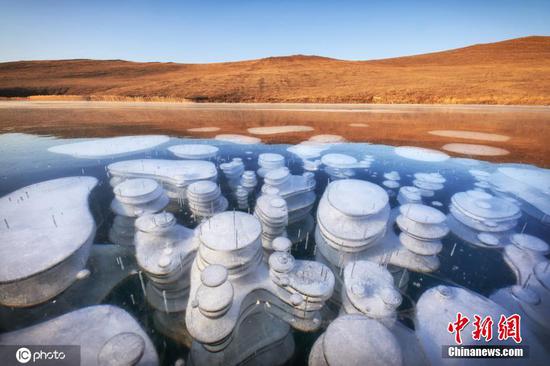Green lifestyle
Ren said pollution from China's consumption sector is increasing, making the promotion of a green lifestyle a key part of the country's efforts for achieving high-quality development.
Thanks to continuous efforts, the country has made great achievements in reducing the intensity of industrial emissions and enhancing energy efficiency over the past 10 years. But some of that progress had been canceled out by a marked rise in consumption-related emissions as that sector expands, he said.
He said vehicle emissions in Beijing, for example, are now responsible for almost one-third of the PM2.5-tiny particulate matter that is hazardous to health-in the capital's air. The country is also confronted with a grim situation in the disposal of growing piles of construction waste and trash from the booming express delivery industry.
"The goal of fundamentally improving the quality of the environment and building a beautiful China cannot be realized without transformations in both the production and life-related consumption sectors," Ren said.
Wang said China has yet to make major, overall breakthroughs in green technologies despite some progress in a few areas. In addition to ratcheting up technology research and development, he said, wide-ranging green transformation will depend on a series of supporting policies, especially green financing.
"The investment for many green development projects usually pays off in the very long run. The current financing mechanisms need to be reformed to be more investment-friendly for such green projects," he said.
Wang also noted another challenge to the green transformation-motivating people to pay more for green products.
In addition to having sufficient income, which offers the economic foundation, and clear green accreditation criteria for products, people need to develop a strong environmental awareness in order to prefer to buy green products.
"The cultivation of green consumption awareness is a long-term, time-consuming progress, which may need the consistent efforts of one generation or even two," he said.
Erik Solheim, vice-chairman of the China Council for International Cooperation on Environment and Development and former executive director of the UN Environment Programme, said China's green development vision is important for China and the world.
"I think this is a most exciting turning point in human history," he said. "Because what happened in the past was first you pollute and then after years you clean up. Now we are in a complete new situation where there is a belief that we can promote economic development goals and create jobs while at the same time taking care of the environment."
He said China will set an example for developing countries that are looking to the world's second-largest economy for inspiration on how to eradicate poverty. And it can show they can do it without having to harm the environment.


















































